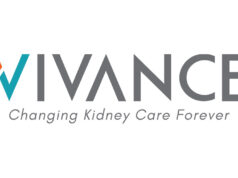
Work exhaustion and a lack of fulfilment are driving burnout among US dialysis patient care technicians (PCTs), according to a new survey whose results have been published in the American Journal of Kidney Diseases (AJKD).
The results corroborate those of a 2021 study in the Journal of Nursing Management by Xiaoyi Cao and Lin Chen (Sichuan University, Chengdu, China) which found that “higher levels of compassion fatigue and lower levels of resilience and work engagement” drive increased turnover in the dialysis workforce. The resilience of this workforce is a core concern of the recent Organ Utilisation Group report in the UK, while this AJKD study, led by Laura C Plantinga (Emory University, Atlanta, USA), makes clear the “imperative” to cut turnover. Plantinga and colleagues describe how “high professional fulfilment and low burnout” are necessary for “a stable dialysis workforce”, with their focus on dialysis PCTs.
To investigate the experiences of these technicians, the study authors designed a cross-sectional national US survey including PCTs from the National Association of Nephrology Technicians/Technologists (NANT). Members of the association numbering 228 were surveyed in the period March-May 2022, with 42.6% aged 35–49, 83.9% female and 64.6% white. The exposures outlined by the authors included Likert-scale items of a range of 0–4 , with these “related to professional fulfilment and two domains of burnout (work exhaustion and interpersonal disengagement)”, as well as “dichotomous items related to turnover intention”.
Setting out the study’s analytical approach, the authors explain: “Summary statistics (percentages, means, medians) were calculated for individual items and average domain scores. Burnout was defined by combined work exhaustion and interpersonal disengagement scores of ≥1.3 and professional fulfilment by a score ≥3.0.”
Of those who responded to the survey, almost three quarters (72.8%) worked ≥40 hours per week. The results set out by the authors also state that “work exhaustion, interpersonal disengagement, and professional fulfilment [median (interquartile range)] were 2.3 (1.3–3.0), 1.0 (0.3–1.8), and 2.6 (2.0–3.2), respectively”. Burnout was reported by 57.5% of respondents, while professional fulfilment was reported by only 37.3%. The survey also examined respondents’ views on the reasons for burnout, with 66.5% reporting salary-related issues and 64.0% supervisor support issues. Other points raised included a sense of doing purposeful work (54.5%), hours worked (52.9%) and respect from fellow dialysis staff (57.8%). Asked whether they planned to still be working as a dialysis PCT in three years, only 52.6% said yes.
The authors describe the survey respondents as a “relatively engaged group of dialysis PCTs”, which they suggest makes it all the more “critical” that only around half intended to continue in the role. They note their survey has “limited generalisability to all US dialysis PCTs”, but the “frontline” nature of the profession, they say, makes it nevertheless “imperative” to develop strategies for improving morale and cutting turnover.
Speaking exclusively to Renal Interventions, Plantinga reviewed the results: “While burnout and turnover are high among these critical frontline workers, our results highlight that there is hope to mitigate this worsening dialysis workforce crisis: dialysis patient care technicians still reported enjoying the intrinsic rewards of patient interactions (even in the setting of work exhaustion) and they also identified specific targets for intervention, including shorter work hours, lighter patient caseloads, more training, and greater respect and autonomy within the dialysis care team, which could improve working conditions and lessen burnout.”












